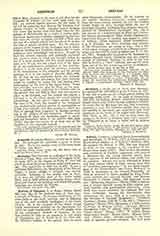

Arethas of Caesarea, b. at Patrae, Greece, about 860, was, like all the eminent men of that time, a disciple of Photius. He became Archbishop of Caesarea early in the tenth century, and is reckoned one of the most scholarly theologians of the Greek Church. He is the compiler of the oldest extant Greek commentary (scholia) on the Apocalypse, for which he made considerable use of the similar work of his predecessor, Andrew of Caesarea. It was first printed in 1535 as an appendix to the works of Ecumenius and is found in P.G., CVI, 493. Dr. Ehrhard inclines to the opinion that he wrote other Scriptural commentaries. To his interest in the earliest Christian literature, caught perhaps from the abovenamed Andrew, we owe the Arethas Codex (Paris, Gr. 451), through which the text of the Greek Christian Apologists has, in great measure, reached us (Bardenhewer, Patrologie, 40). He is also known as a commentator of Plato and Lucian; the famous manuscript of Plato (Codex Clarkianus), taken from Patmos to London, was copied by order of Arethas. Other important Greek manuscripts, e.g. of Euclides, the rhetor Aristides, and perhaps of Dio Chrysostom, are owing to him. Not a few of his minor writings, contained in a Moscow manuscript, are said still to await an editor (see P.G., loc. cit.. 787). Krumbacher emphasizes his fondness for ancient classical Greek literature and the original sources of Christian theology, in spite of the fact that he lived in a “dark” century, and was far away from any of the few remaining centers of erudition. The latest known date of his life is 932.
THOMAS J. SHAHAN

